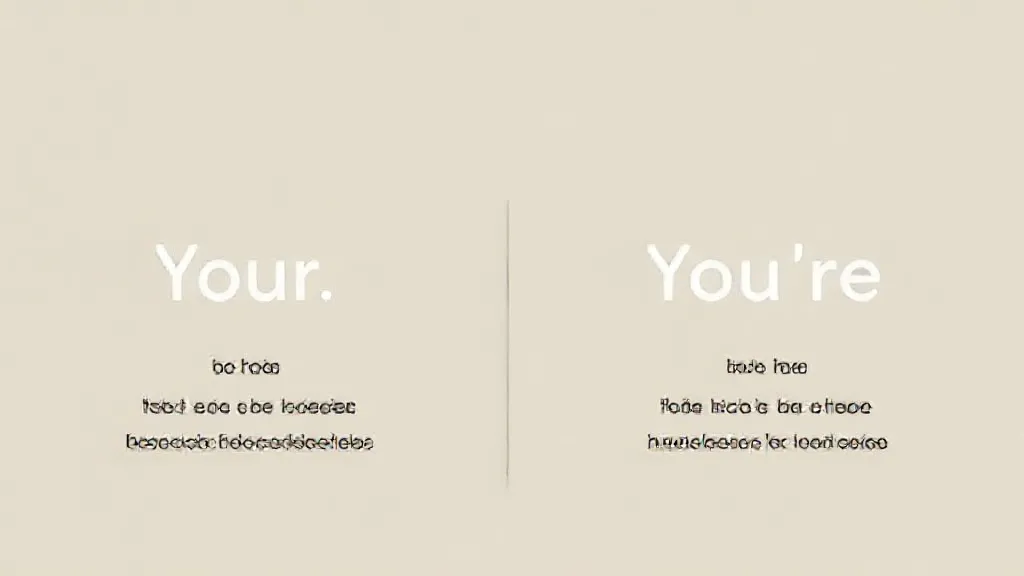The English language is filled with words that can easily confuse even the most seasoned writers. Among these, "your" and "you’re" are two of the most commonly misused terms. This confusion often stems from their similar pronunciation and the subtle differences in their meanings.
Understanding these distinctions is crucial for effective communication and can significantly enhance one's writing skills.
Understanding "Your" and "You’re"
"Your" is a possessive adjective, used to indicate ownership or relation. For example, in the sentence "Is this your book?" the word "your" shows that the book belongs to the person being addressed.
On the other hand, "you’re" is a contraction of "you are." In the sentence "You’re going to love this movie," "you’re" indicates an action or state of being related to the subject. Recognizing these definitions is the first step toward avoiding confusion.
Phonetic Similarity and Its Impact
The phonetic similarity between "your" and "you’re" is a significant factor contributing to the confusion. Both words are pronounced the same way, leading many to mistakenly use one in place of the other in spoken language. This auditory confusion can easily translate into written language, especially for those who may not have a strong grasp of grammar rules.
The reliance on phonetics highlights the importance of understanding word functions beyond just how they sound.
Common Misuses and Examples
One of the most frequent errors occurs in informal writing, such as text messages and social media posts. For instance, someone might write, "I can’t believe your going to the concert," when the correct phrase should be, "I can’t believe you’re going to the concert.
" This misuse not only alters the intended meaning but can also lead to misunderstandings. Examples like these illustrate the importance of context in determining which word to use.
The Role of Education in Clarifying Usage
Educational systems play a crucial role in teaching the distinctions between "your" and "you’re.
" Many schools include grammar lessons that emphasize the differences between possessive adjectives and contractions. However, despite this instruction, the prevalence of digital communication often leads to a decline in formal writing skills. To combat this, educators must reinforce these lessons and provide practical exercises that encourage correct usage in real-world contexts.
Cultural Influences on Language Usage
Cultural factors also contribute to the confusion between "your" and "you’re." In a society that increasingly values brevity and speed in communication, many individuals may prioritize quick responses over grammatical accuracy. This cultural shift can lead to the normalization of incorrect usage, making it essential for language advocates to promote the importance of proper grammar in both spoken and written forms.
The Importance of Proofreading
One effective strategy to avoid the confusion between "your" and "you’re" is to practice diligent proofreading. Taking the time to review written work allows individuals to catch errors before they become part of the final product. Tools such as grammar checkers can also assist in identifying these common mistakes, but relying solely on technology may not be sufficient.
Developing a personal habit of careful review can significantly reduce errors.
Resources for Further Learning
For those looking to deepen their understanding of the differences between "your" and "you’re," numerous resources are available. Grammar websites, educational videos, and style guides provide valuable insights and exercises that reinforce proper usage.
Engaging with these materials can help clarify any lingering confusion and improve overall writing skills.
In conclusion, the confusion between "your" and "you’re" can be attributed to phonetic similarity, cultural influences, and a lack of emphasis on grammar in modern communication. By understanding the definitions, recognizing common misuses, and utilizing educational resources, individuals can enhance their writing and avoid this common pitfall.
Mastery of these terms is not only beneficial for personal communication but also essential for professional credibility in written correspondence.
